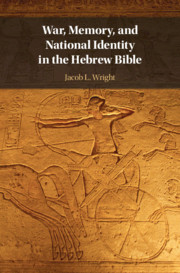Contents
Introduction:Wellhausen, War, and the Creation of a Nation
- Part IRefugee Memories: Negotiating Relations and Borders with Neighboring States
- Part IIKinship and Commandment: The Transjordanian Tribes and the Conquest of Canaan
- Part IIIRahab: An Archetypal Outsider
- Part IVDeborah: Mother of a Voluntary Nation
Conclusions:A Movable Monument and a Portable Homeland

